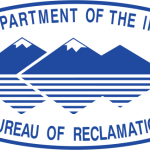- Branche: Government
- Number of terms: 15655
- Number of blossaries: 0
- Company Profile:
A U.S. Department of the Interior agency that oversees water resource management incuding the oversight and operation of numerous diversion, delivery, and storage projects the agency has built throughout the western United States for irrigation, water supply, and attendant hydroelectric power ...
A vertical or inclined shaft into which water spills and then is conveyed through, under, or around a dam by means of a conduit or tunnel. If the upper part of the shaft is splayed out and terminates in a circular horizontal weir, it is termed a bellmouth, glory hole, or morning glory spillway.
Industry:Engineering
A gully or channel cut by an intermittent stream. A water-carved channel or gulley in an arid area, usually rather small in cross section with steep banks, dry much of the time due to infrequent rainfall and the depth of the cut which does not penetrate below the level of permanent ground water.
Industry:Engineering
The onsite examination performed initially and at predetermined intervals (approximately every 6 years). The design, construction, operation, performance, and existing condition of all features are evaluated in accordance with state-of-the-art criteria. See overall safety of dams classification.
Industry:Engineering
Material transported and deposited by flowing water, such as clay, silt, sand, and gravel. Soil, the constituents of which have been transported in suspension by flowing water and subsequently deposited by sedimentation. A stratified bed of sand, gravel, silt, and clay deposited by flowing water.
Industry:Engineering
The extra height added to the crest of embankment dams to ensure that the freeboard will not be diminished by foundation settlement or embankment consolidation. The amount of camber is different for each dam and is dependent on the amount of foundation settlement and embankment expected to occur.
Industry:Engineering
A sudden motion or trembling in the earth caused by the abrupt release of accumulated stress along a fault. See design basis earthquake (DBE), maximum credible earthquake (MCE), maximum design earthquake (MDE), operating basis earthquake (OBE), random earthquake, and safety evaluation earthquake.
Industry:Engineering
Height to which the water rises behind the dam, and is the difference between the lowest point in the original streambed at the axis or the centerline crest of the dam, or the invert of the lowest outlet works, whichever is lower, and the maximum controllable water surface. See structural height.
Industry:Engineering
The upstream and downstream parts of the cross section of an embankment dam on each side of the core or core wall. Hence the expression upstream shoulder or downstream shoulder. The graded part of a road on each side of the pavement. The side of a horizontal pipe, at the level of the center line.
Industry:Engineering
The upstream and downstream parts of the cross section of an embankment dam on each side of the core or core wall. Hence the expression upstream shoulder or downstream shoulder. The graded part of a road on each side of the pavement. The side of a horizontal pipe, at the level of the center line.
Industry:Engineering
A soluble salt obtained from the ashes of plants. A substance having marked basic properties. Various soluble salts, principally of sodium, potassium, magnesium, and calcium, that have the property of combining with acids to form neutral salts and may be used in chemical water treatment processes.
Industry:Engineering
